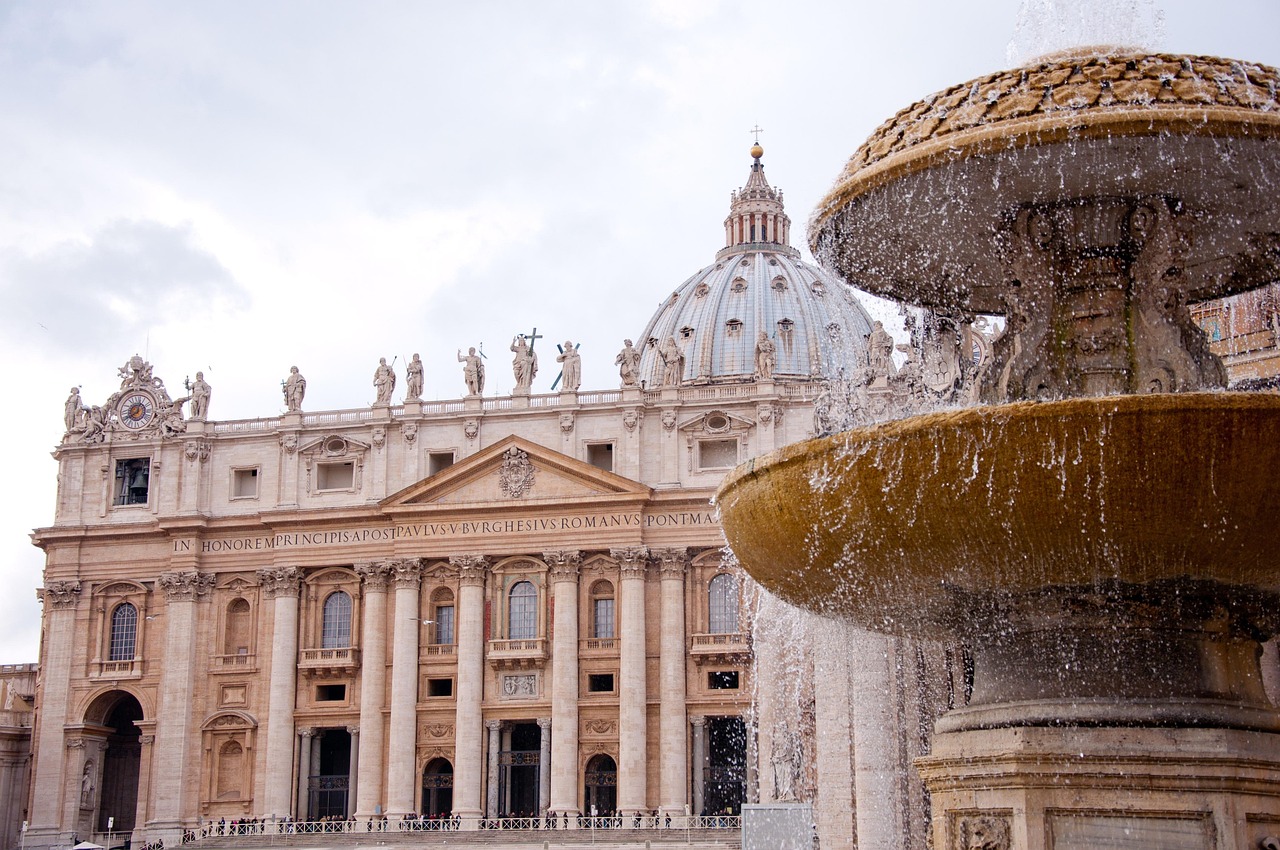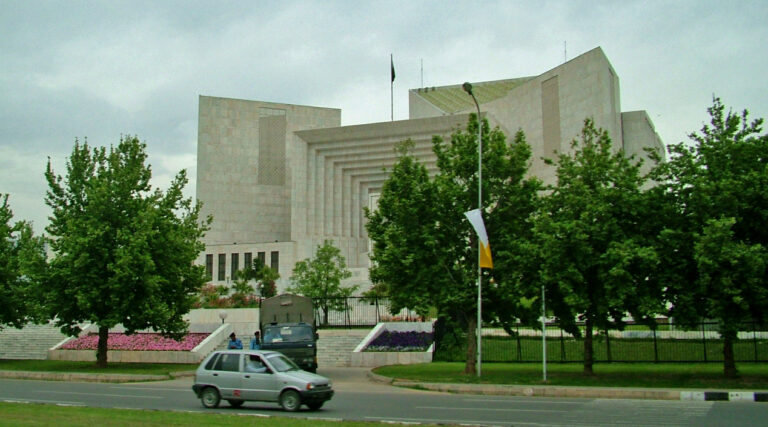
Catholic Fraternal Pluralism and Respect for Conscience
Matthew P. Cavedon
Basilica of Saint Peter by Carlo Armanni from Pixabay.
Pope Francis envisions human fraternity in his 2020 encyclical Fratelli Tutti. This essay explores how “fraternal pluralism” guides the Church’s respect for personal conscience. This teaching reflects aspects of earlier Church history and the Vatican II document Dignitatis Humanae, and it can be illustrated by examining the approach of Boston’s archbishop, Cardinal Richard Cushing, to Massachusetts’s mid-twentieth century campaigns to legalize contraception.
What does this essay mean by fraternal pluralism? Pope Francis writes that fraternity requires more than simply the civil toleration and political equality implied by pluralism. Fraternity “enhances” these norms through education, dialogue, and mutual relationship. Such practices orient freedom to love, rather than letting it be the mere condition for individual autonomy or even exploitation. Fraternal pluralism does not merely recognize differences, it rejoices in them. Communication involves finding gifts and opportunities for growth in cultural and experiential variation.
The Pope defines constructive dialogue as “readiness to give and receive.” Dialogue requires respect for differing opinions, and recognition that even conflicting ones may reflect “legitimate convictions and concerns.” People should be encouraged to contribute to public debate, as society benefits from reasoned deliberation. These benefits extend to listeners, too, who can learn how to understand others’ positions, “to seek points of contact, and above all, to work and struggle together.” Frank and inclusive public discourse furthers the cause of truth and keeps groups from pursuing only their own interests.
Fratelli Tutti depicts society as a polyhedron, not a set of separate groups or one neat form. Every position, including those on the edges, forms the shape of the whole; no person’s perspective is superfluous to society. No one person or group should claim to have the whole truth, as this “would lead to nullifying others by denying their rights.” People should live out fraternal pluralism by internalizing different perspectives and being “passionate about meeting others, seeking points of contact, building bridges, planning a project that includes everyone.”
Fraternal Pluralism & Personal conscience
Fraternal pluralism guides how the Church approaches Catholics who reject its teachings. Historically, the Church accepted limits on the coercion of those who disagreed with its teachings and taught that even an incorrect conscience must be respected. Vatican II strengthened these doctrines by rejecting all civil coercion in religious matters. This had an immediate impact when Cardinal Cushing endorsed the liberalization of contraception laws.
The Church, Limited Government & the Primacy of Conscience
Catholicism has long supported limits on government coercion and insisted as a matter of ethics that conscience is binding even if it goes astray. The earliest Christians assumed division between the Church’s spiritual jurisdiction and the state’s authority to use physical coercion. Jesus taught that a sinner who refused to obey the Church’s judgment should be treated like a non-believer or civil servant—which implies room in civil society for dissidents. He told people to give to Caesar what belongs to Caesar but to God what belongs to God. Likewise, Saint Paul ordered that a man guilty of incest be handed over to pagan Roman authorities. The first Christians were apart from, and sometimes persecuted by, the state rather than agents over it.
Although Catholics did eventually gain political power, even at the height of the middle ages, theologians continued to endorse limits on government force. While Saint Thomas Aquinas supported bans on blasphemy, heresy, and apostasyapostacy, he also favored other personal freedoms. He understood governments as imitating God’s divine rule of the universe, but said God tolerates some evils for the sake of greater goods and to prevent greater evils. He cited Saint Augustine’s idea that eradicating prostitution would lead only to more dangerous lust. Human laws should refrain from attacking every vice and acknowledge that most people are imperfect. They should mainly prohibit vices that harm other people and would destroy society, like murder and theft. Doing more than this may make people resent the law altogether. Aquinas also accepted good-faith disagreements among Catholics as normal when not concerning “things necessary to salvation” or “undue obstinacy.” Though governments should quell civil strife and sedition, as well as outright heresy, they should avoid undue paternalism.
While not accepting civil religious liberty, Aquinas held conscience in great respect, even when it led Catholics into error. He wrote that human reason is fallible. Still, it puts judgments forward as required by truth, and God is true. Therefore, “to scorn the dictate of reason”—even where it is objectively wrong—“is to scorn the commandment of God.” If people are negligent in forming their consciences, they are liable for that. However, innocent ignorance is possible, and someone who honestly follows a mistaken conscience is morally excused.
In sum, Jesus rejected violence, set the outer bounds of Christian dispute as treating someone like an outsider, and modeled radical love for outsiders. Saint Paul urged Christians to accept civil government, but did not call for them to impose physical coercion through the Church itself. Aquinas respected civil liberty in some regards and revered conscience. In the 1960s, the Second Vatican Council wove these strands into an endorsement of religious and conscientious civil liberty.
Dignitas Humanae Confirmed Respect for Dissenting Conscience
One particularly important contributor to the Council’s key text in this regard, Dignitatis Humanae, was Father John Courtney Murray. An American, Murray loved his country’s religious freedom, believing it to be deeply consistent with Catholic thought. Although the American Founders were mostly Protestants and Deists, they drew on the Western tradition of freedom, which was itself inspired by Catholicism. America recovered that tradition in enshrining religious liberty, and Fr. Murray worked to recover it for the Church.
Dignitatis Humanae prized conscience. It described people as able to “act on their own judgment, enjoying and making use of a responsible freedom, not driven by coercion but motivated by a sense of duty.” In turn, people demand freedom concerning “the quest for the values proper to the human spirit,” especially in religious matters. This reflects the conscience’s duty to seek religious truth—“to embrace the truth . . . and to hold fast to it.” This obligation comes only as the truth “makes its entrance into the mind at once quietly and with power.” People have an inviolable right against human religious coercion. This divinely granted liberty protects beliefs and actions, both individual and collective.
The Council even endorsed fraternal pluralism, writing that reason and conscience are formed for right judgments “with the aid of teaching or instruction, communication and dialogue, in the course of which men explain to one another the truth they have discovered, or think they have discovered, in order thus to assist one another in the quest for truth.” Once people believe they have discovered truth, they must personally commit to it and integrate it into their through their consciences. This duty further justifies fraternal pluralism, as people naturally seek to share with others their religious beliefs. What is more, governments should foster fraternal pluralism by favoring religion. This can only properly be done while recognizing human freedom and equality. Responsibility for fraternal pluralism falls to “the whole citizenry, upon social groups . . . and upon the Church and other religious communities.”
Dignitatis Humanae confirms that fraternal pluralism extends to those who dissent from the Church. No one can be socially coerced into remaining in a religious community. Catholicism involves “reasonable and free submission of faith.” Because God wants service “in spirit and in truth,” people are “bound in conscience but they stand under no compulsion.” Fraternal pluralism and respect for conscience are divinely ordered, even though historically, Catholics have sometimes forgotten this. Religious liberty is a necessary foundation for the growing fraternity of people of different nations, religions, and cultures—and is required out of respect for conscience.
Cardinal Cushing showed dissenters fraternal pluralism.
Dignitatis Humanae had a direct and immediate impact on Massachusetts’s legalization of artificial contraception. In 1948, fifteen years before Vatican II, Cushing persuaded voters to reject a contraception-legalization referendum. In 1962, he reiterated his stance. A year later, though, he began to move toward fraternal pluralism. Cushing granted that there was “much that is good” in criticism of Church doctrine by the Catholic physician John Rock, the inventor of hormonal birth control. Cushing disagreed with Rock’s theological arguments, but expressed hope that his policy proposals “could contribute to the establishment of peace in our pluralistic society.” Instead of condemning Rock, Cushing said people like him could help the Church develop its own thinking through dialogue.
Cushing stopped fighting liberalization. He said he would not “enter into a political phase of this subject,” based on his respect for “individual religious consciences.” At the end of 1964, Cushing advised Massachusetts’s other bishops that the Church would accept the legalization of artificial contraception based on “respect for the varied consciences present in a pluralistic society.” Public announcement of this stance followed in 1965. Then, the following year, a Catholic professor at Boston College led the Planned Parenthood League’s successful legislative lobbying. Cushing concluded that Catholics “do not seek to impose by law their moral views on other members of society,” recognizing that the modern Christian “lives in a society of differing beliefs, a pluralist society,” and so “must be prepared and ready for friendly discussion with those whose views of life and its meaning are different than his own.” Once Dignitatis Humanae was released, Cushing backed a specific legalization bill—and even had Fr. Murray draft the Archdiocese’s language on the issue.
Was this episode merely the crescendo of 1960s liberalism? The consensus that legalized birth control in Massachusetts did not last long. Internally, the Church reaffirmed the immorality of birth control in 1968. Cushing died in 1970. Three years later, the U.S. Supreme Court legalized abortion nationwide in Roe v. Wade. This catalyzed the pro-life movement, which did not argue for the liberalization of laws governing a perceived private vice. However, neither did it retreat from fraternal pluralism. The movement was itself pluralist—it was composed of Catholics, Protestants, Orthodox Jews, and other Americans, representing different religious commitments and political persuasions. It also argued its case from grounds compatible with pluralism, asserting that fighting abortion was a matter of defending human rights, rather than of impeding on others’ consciences for the sake of exclusive Catholic moral concerns.
Catholics did not abandon their commitment to civil respect for religious and conscientious liberty. In a context the Church considers more similar to contraception than to abortion (insofar as it is deemed a private sin), the Vatican has criticized government bans on homosexual activity since 2008. The Church has condemned “unjust discrimination” on the basis of sexual orientation for even longer, since the days of Pope John Paul II. Theological dissent can meet with dialogue and encounter as well. As archbishop of Munich, Joseph Ratzinger reportedly agreed with the Vatican’s decision to condemn the theologian Hans Küng. After becoming Pope Benedict XVI, he dined with Küng and the two issued a joint statement about ethics, science, and faith.
Fraternal pluralism has proven possible even in the context of blasphemy. After Islamist terrorists killed a group of provocative French satirists in 2015’s Charlie Hebdo attacks, Paris’s archbishop affirmed the right to criticize the Church. (Regrettably, Pope Francis both condemned the attack and said there is no right to “make fun of faith,” implying that those who do so may “get a punch in the nose”.) French Catholic commentator Pascal-Emmanuel Gobry quipped: “A century ago, the cardinal’s predecessor would undoubtedly have thought that Charlie Hebdo should be shut down as a measure of public safety. And a few centuries before that, his predecessor might have put [its authors] on the rack.” Gobry continued that he appreciated some of Charlie Hebdo’s humor, and because of Dignitatis Humanae,
as much as I am a man of Christ and a man of the church—because I am these things—I am also a man of Enlightenment liberalism. That is why I see an attack against people with whom I disagree on almost everything as an attack on my values, on what I believe in and cherish.
Conclusion
Fraternal pluralism is more than mere civil tolerance, but politics is also a way of encountering others and so is part of the “Christian struggle to learn to love.” Love fails when politics devolves into bullying, demonization, exclusion, destruction, and arrogance. Fraternal pluralism means dialogue, self-examination, and solidarity across differences. It requires a “modern Christian citizen for whom . . . pluralism is not simply nuisance or even outrage, but who feels at home in it.” It happens when the Church does not merely acquiesce to changes in society, but defends legitimate freedom for those who differ from its teachings—such as civil liberty for those who want to engage in sexual activity it deems immoral and those who criticize what the Church holds dear. Catholics treat dissenters consistently with religious liberty and moral diversity, practicing fraternal pluralism toward them. Catholics are taught by the Church to rejoice that others are brothers and sisters all. ♦

Matthew P. Cavedon is the Robert Pool Fellow in Law and Religion at the Emory University School of Law. He is the author of From the Pope’s Hand to Indigenous Lands: Alexander VI in Spanish Imperialism (2024).
Recommended Citation
Cavedon, Matthew. “Catholic Fraternal Pluralism and Respect for Conscience.” Canopy Forum, April 09, 2025. https://canopyforum.org/2025/04/09/catholic-fraternal-pluralism-and-respect-for-conscience/.
Recent Posts










